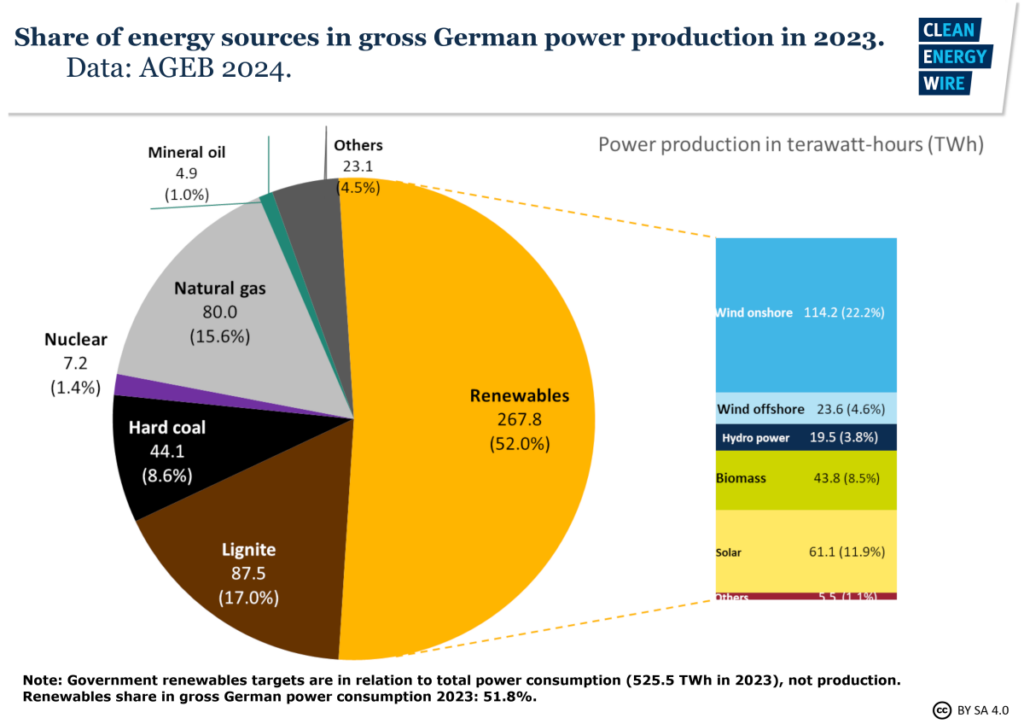Germany has long been a pioneer in transitioning to renewable energy, often placing it at the forefront of global discussions about sustainable practices. The nation’s significant move away from nuclear power in favor of renewables has shaped its energy policy for decades, culminating in a comprehensive strategy known as the “Energiewende” or energy transition.
What’s Happening & Why This Matters
Germany’s decision to phase out nuclear power was solidified following the Fukushima disaster in 2011, reinforcing a long-standing skepticism among the German public and policymakers about nuclear energy’s safety. The anti-nuclear sentiment in Germany has roots that date back to the Cold War and environmental movements of the 1970s and ’80s.
Over the years, Germany has made substantial investments in renewable energy sources such as wind, solar, and bioenergy. By 2023, renewables accounted for 51.8% of the country’s gross domestic electricity consumption, a stark increase from just 6.3% in 2000.
“While challenges remain, particularly in storage and grid integration, Germany’s model provides valuable lessons for global energy policies.”

One distinctive feature of Germany’s energy transition is the significant role played by ordinary citizens and cooperatives, who owned about 40.4% of the renewable capacity in 2019. “Germany’s commitment to a clean energy future, particularly post-Fukushima, illustrates a profound national consensus on the importance of sustainable and safe energy sources,” explains a European energy policy expert. This decentralization effort emphasizes community participation and empowerment that aligns to broader sustainability goals and local ecosystem protection. Implications of Germany’s Energy Policies:
- Economic and Social Impact: The shift towards renewables has not only helped reduce carbon emissions but also fostered economic growth in rural areas through new energy projects and technologies.
- Political Landscape: Germany’s energy policies have occasionally stirred controversy, especially regarding the pace of the transition and the challenges of energy storage and grid management. The Green Party, which has been instrumental in shaping these policies, continues to influence Germany’s energy debates profoundly.
- Global Influence: Germany’s approach has inspired similar transitions worldwide, as countries seek to balance energy needs with environmental and safety concerns.
TF Summary: What’s Next
Germany’s energy transition is poised to enter a new phase focused on energy storage solutions improvements and integrating greener technologies that improves grid management and efficiency. As the world tackles climate change, Germany’s investments in renewable energies and its gradual distancing from nuclear power will lead to improved strategies in Europe and beyond. The journey of the Energiewende not only highlights the importance of substantive change driven by community involvement and political, but further serves as a roadmap for other nations who follow suit on sustainability.


